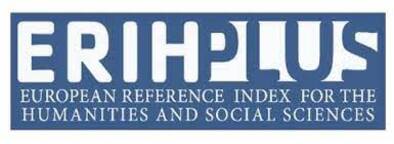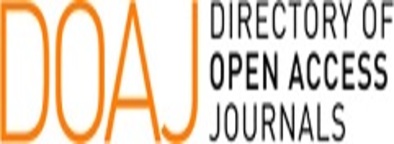The Consciousness and life on the bound of tragedy
Nietzschean considerations about the affirmative disposition
DOI:
https://doi.org/10.47456/sofia.v14i1.47982Keywords:
Nietzsche, conscience, tragedy, life, affirmationAbstract
Nietzsche's thought proposes, in its maxims and sentences, to deconstruct everything that the monument of reason has built in the form of consciousness. For this reason, faced with the dramatic situations that arise, it is not a case of becoming aware of them, but rather experiencing. Conscience, by interposing the exercise of reason, falsifies the fact, while experience embraces what appears to be broader and more genuine in it. Only beyond the exercise of conscience does the German philosopher understand that it is possible to face tragedy, as one does not think about it, but simply lives it. And it is through the experience and not awareness of the tragic element that Nietzsche points out a possible path to affirm life. This project can be carried out to the extent that life can be rescued in its integral and original dimension, without the influx of elements that do not belong to it. And an immediate path to life is that of its experience, beyond everything that is done in terms of its scientific operation. This work aims to show that when any effort is made with the intention of becoming aware of something, there is a cut in the exercise of directing oneself towards life, as elements are put in front of it that do not allow it to present itself as it is in itself, in its happening, to interpose mechanisms that interfere with their own reality of life. The abandonment of the most intimate experience of reality to the detriment of its peripheral formal aspect causes all of life and what is part of it to be relegated to the plane of the derisory. All theorizing about life is nothing more than its falsification, which is consciousness itself, like lenses that appear before reality.
References
ABEL, G. “Bewusstsein — Sprache — Natur: Nietzsches Philosophie des Geites”. In: Nietzsche-Studien (pp. 1-43), 30, Berlin, 2001.
CALOMENI, T. C. B. Breves notas sobre a crítica nietzschiana da consciência e da linguagem. In: Cadernos Nietzsche, (pp. 227-248), 28, São Paulo: USP, 2011.
ESPINAS, A. Des sociétés animales. 3e ed. Paris: Félix Alcan, 1924.
FREZZATTI, W. A. Jr. () Nietzsche leitor da Biologia do século XIX: Dominação vs. Nutrição e Reprodução. In: Estudos Nietzsche, (pp.25-42), Espírito Santo, v.9, n.2, jul./dez, 2018.
MARTON, S. (). Vontade (Wille). In: Dicionário Nietzsche. (pp. 421-423), Col. Sendas e Veredas. GEN – Grupo de Estudos Nietzsche. São Paulo: Edições Loyola, 2016.
MARTON, S. (), Consciência (Bewusstsein). In: Dicionário Nietzsche. (pp. 154-156), Col. Sendas e Veredas. GEN – Grupo de Estudos Nietzsche. São Paulo: Edições Loyola, 2016.
ITAPARICA, A. L. M. Consciência (Gewissen). In: Dicionário Nietzsche. (pp. 156-158), Col. Sendas e Veredas. GEN – Grupo de Estudos Nietzsche. São Paulo: Edições Loyola, 2016.
NIETZSCHE, F. W. (), Kritische Studienausgabe.. Herausgegeben von Giorgio Colli und Mazzino Montinari. Berlin: Verlag de Gruyter,1999. 15 Bd
NIETZSCHE, F. W. (). Sämtliche Briefe: Kritische Gesamtausgabe Briefwechsel KGB. Herausgegeben von Georgio Colli und Mazzino Montinari. Berlin: Walter de Gruyter, 1986. 8 Bd.
NIETZSCHE, F. W. O nascimento da tragédia.. Trad. Paulo César de Souza. São Paulo: Companhia das Letras, 1982.
NIETZSCHE, F. W. Humano, demasiado humano. Um livro para espíritos livres. Trad. Paulo César de Souza. São Paulo: Companhia das Letras, 2005.
NIETZSCHE, F. W. A gaia ciência. Trad. Paulo César de Souza. São Paulo: Companhia das Letras, 2001.
NIETZSCHE, F. W. Assim falou Zaratustra. Trad. Paulo César de Souza. São Paulo: Companhia das Letras, 2011.
NIETZSCHE, F. W. Obras incompletas. Trad. Rubens Rodrigues Torres Filho. São Paulo: Editora Nova Cultural Ltda, 1999
RIBOT, T. Les maladies de la mémoire. Paris: Germer Baillière, 1881.
ROUX, W. Der Kampf der Theile im Organismus: ein Beitrag zur Vervollständigung der mechanischen Zweckmässigkeitlehre. Leipzig: Verlag von Wilhelm Engelmann, 1881.
SPENCER, H. the principles of biology. v. i. London: Williams and Norgate, 1864.
ZITTEL, K. Éticas esteticamente fundadas e a filosofia de Nietzsche. In: Revista de Filosofia Moderna e Contemporânea, (pp. 367-391), Brasília, v.7, n.1, abr, 2029.
Downloads
Published
Issue
Section
License
Copyright (c) 2025 Adilson Felicio Feiler

This work is licensed under a Creative Commons Attribution 4.0 International License.
Dada a política de acesso público da revista, o uso dos textos publicados é gratuito, com a obrigação de reconhecer a autoria original e a primeira publicação nesta revista. Os autores das contribuições publicadas são inteiramente e exclusivamente responsáveis por seus conteúdos.
I Os autores autorizam a publicação do artigo nesta revista.
II Os autores garantem que a contribuição é original e assumem total responsabilidade pelo seu conteúdo em caso de impugnação por terceiros.
III Os autores garantem que a contribuição não está sob avaliação em outra revista.
IV Os autores mantêm os direitos autorais e concedem à revista o direito de primeira publicação, sendo o trabalho licenciado sob uma Licença Creative Commons Atribuição-BY.
V Os autores são autorizados e incentivados a divulgar e distribuir seu trabalho on-line após a publicação na revista.
VI Os autores dos trabalhos aprovados autorizam a revista a distribuir seu conteúdo, após a publicação, para reprodução em índices de conteúdo, bibliotecas virtuais e similares.
VII Os editores reservam o direito de fazer ajustes no texto e adequar o artigo às normas editoriais da revista.


















